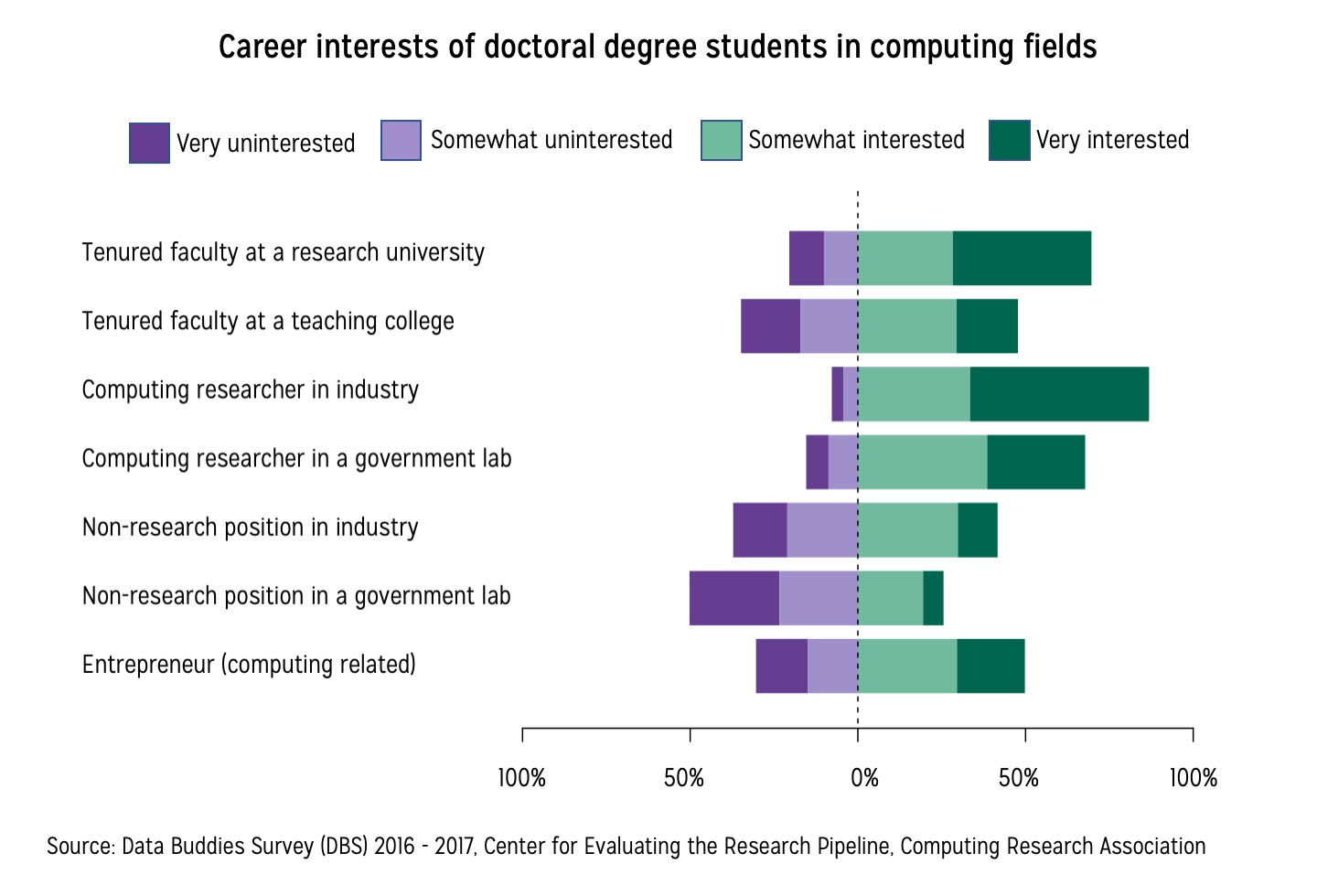Career Interests of Graduate Students in Computing Doctoral Degree Programs

The graphic shows career interests of graduate students in computing doctoral degree programs. Students reported, by far, the highest level of interest in computing researcher positions in industry followed by tenured faculty positions at research universities and research positions in government labs.
The career interests of graduate students on their way to earning a doctoral degree in computing are particularly relevant for the computing community, especially for academic departments, for two interrelated reasons. First, departments are contending with issues related to faculty either moving to industry research positions or taking on joint appointments. Second, given the booming enrollments in computing, computing departments are struggling to meet the demand for their courses. As a result of insufficient doctoral degree production and losing faculty to industry, meeting this increase in demand is especially challenging. Data presented here show that, indeed, future computing Ph.D.s exhibit a strong preference toward research positions in industry even before they enter the workforce.
Notes:
The survey data used in this chart were collected during the fall 2016 and 2017 by CERP via the Data Buddies Project. The sample includes 2,771 graduate students in a computing Ph.D. degree program. Students were asked to rate their level of interest in a list of careers on a scale of very uninterested (1) to very interested (5). Students who responded “neither interested nor uninterested” were not included in the graphic but were included while calculating the percentages. Students’ level of interest in being a computing researcher was compared to the that of the other categories using t-tests and the former was statistically significantly higher than the latter (p < .05).
 This analysis is brought to you by the CRA’s Center for Evaluating the Research Pipeline (CERP). CERP provides social science research and comparative evaluation for the computing community. Subscribe to the CERP newsletter here.
This analysis is brought to you by the CRA’s Center for Evaluating the Research Pipeline (CERP). CERP provides social science research and comparative evaluation for the computing community. Subscribe to the CERP newsletter here.
This material is based upon work supported by the National Science Foundation under grant numbers (CNS-1246649, DUE-1431112, and DUE 1821136). Any opinions, findings, and conclusions or recommendations expressed in this material are those of the author(s) and do not necessarily reflect the views of the National Science Foundation.








